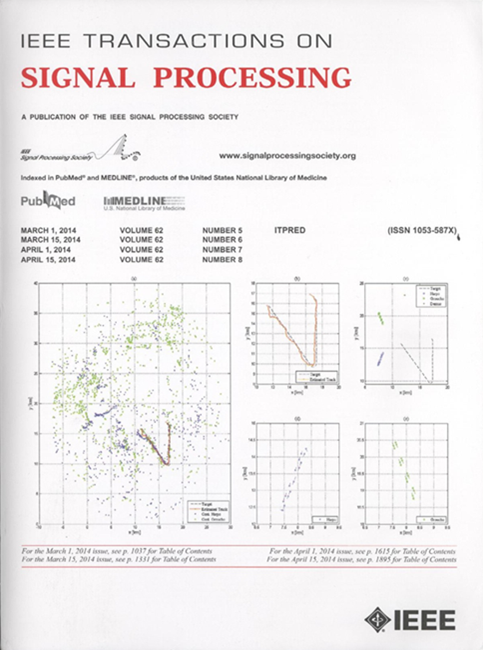通过因子化梯度下降实现低管状张量恢复
IF 4.6
2区 工程技术
Q1 ENGINEERING, ELECTRICAL & ELECTRONIC
引用次数: 0
摘要
本文研究了从少量损坏的线性测量中恢复具有底层低管秩结构的张量的问题。处理此类问题的传统方法需要计算张量奇异值分解(t-SVD),这是一个计算密集型的过程,使得它们无法处理大规模张量。为了解决这一挑战,我们提出了一种高效的低管阶张量恢复方法,该方法基于类似于Burer-Monteiro (BM)方法的分解过程。准确地说,我们的基本方法包括将一个大张量分解为两个较小的因子张量,然后通过分解梯度下降(FGD)来解决问题。该策略消除了t-SVD计算的需要,从而降低了计算成本和存储需求。我们提供了严格的理论分析,以确保在无噪声和有噪声情况下的FGD收敛。此外,值得注意的是,我们的方法不需要对张量tubal-rank进行精确估计。即使在tubal-rank被略微高估的情况下,我们的方法仍然表现出稳健的性能。一系列的实验表明,与其他流行的方法相比,我们的方法在计算速度更快和收敛误差更小方面在多种情况下表现出优越的性能。本文章由计算机程序翻译,如有差异,请以英文原文为准。
Low-Tubal-Rank Tensor Recovery via Factorized Gradient Descent
This paper considers the problem of recovering a tensor with an underlying low-tubal-rank structure from a small number of corrupted linear measurements. Traditional approaches tackling such a problem require the computation of tensor Singular Value Decomposition (t-SVD), which is a computationally intensive process, rendering them impractical for dealing with large-scale tensors. Aiming to address this challenge, we propose an efficient and effective low-tubal-rank tensor recovery method based on a factorization procedure akin to the Burer-Monteiro (BM) method. Precisely, our fundamental approach involves decomposing a large tensor into two smaller factor tensors, followed by solving the problem through factorized gradient descent (FGD). This strategy eliminates the need for t-SVD computation, thereby reducing computational costs and storage requirements. We provide rigorous theoretical analysis to ensure the convergence of FGD under both noise-free and noisy situations. Additionally, it is worth noting that our method does not require the precise estimation of the tensor tubal-rank. Even in cases where the tubal-rank is slightly overestimated, our approach continues to demonstrate robust performance. A series of experiments have been carried out to demonstrate that, as compared to other popular ones, our approach exhibits superior performance in multiple scenarios, in terms of the faster computational speed and the smaller convergence error.
求助全文
通过发布文献求助,成功后即可免费获取论文全文。
去求助
来源期刊

IEEE Transactions on Signal Processing
工程技术-工程:电子与电气
CiteScore
11.20
自引率
9.30%
发文量
310
审稿时长
3.0 months
期刊介绍:
The IEEE Transactions on Signal Processing covers novel theory, algorithms, performance analyses and applications of techniques for the processing, understanding, learning, retrieval, mining, and extraction of information from signals. The term “signal” includes, among others, audio, video, speech, image, communication, geophysical, sonar, radar, medical and musical signals. Examples of topics of interest include, but are not limited to, information processing and the theory and application of filtering, coding, transmitting, estimating, detecting, analyzing, recognizing, synthesizing, recording, and reproducing signals.
 求助内容:
求助内容: 应助结果提醒方式:
应助结果提醒方式:


